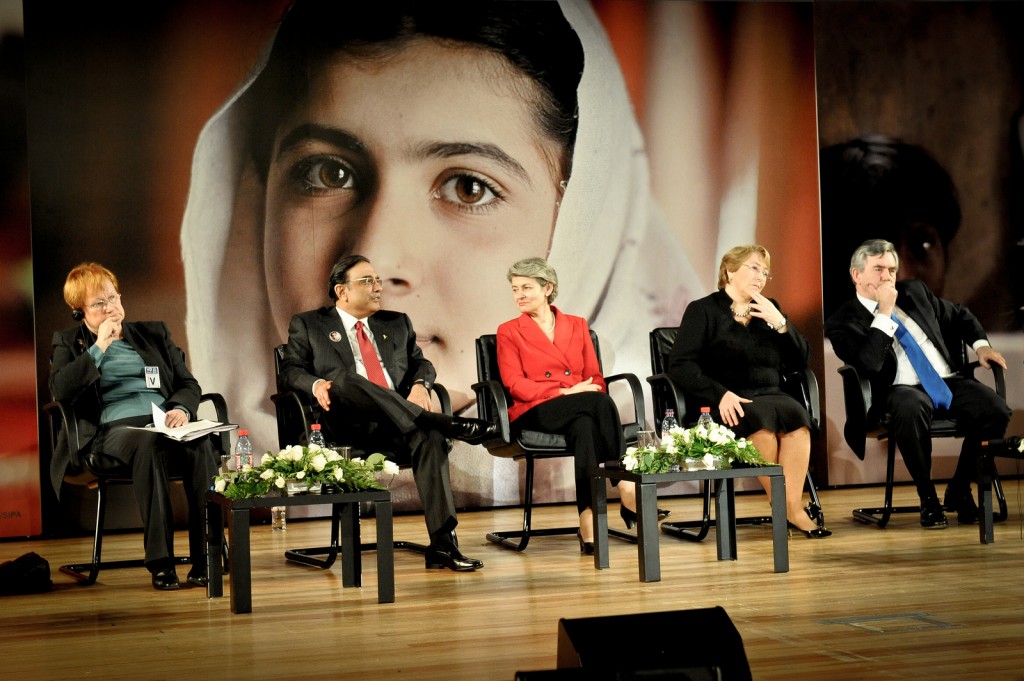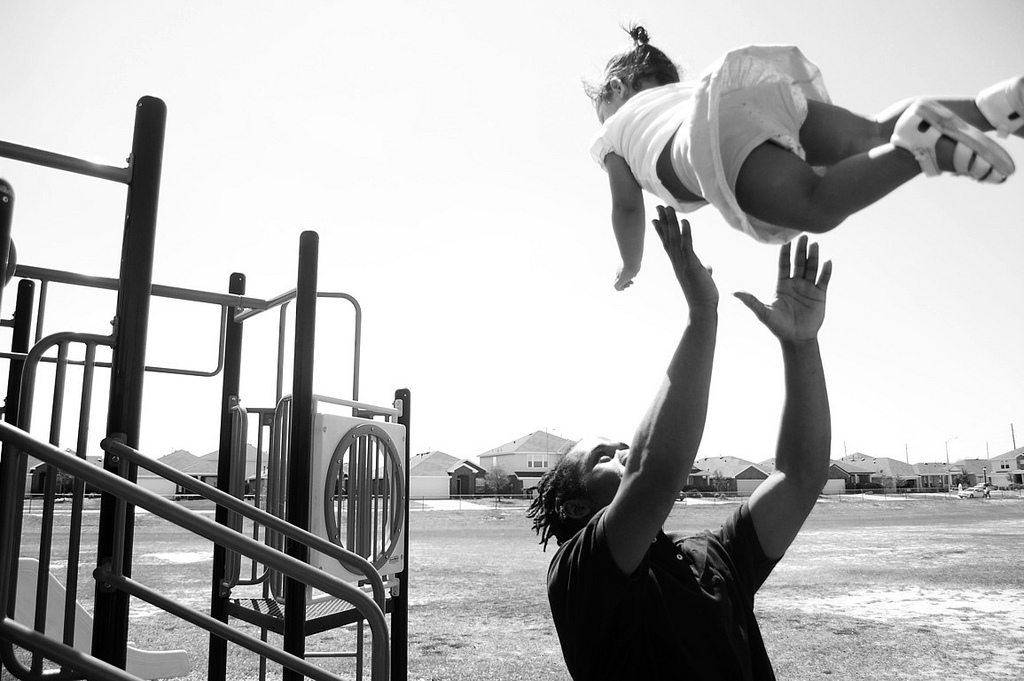Daddies and Daughters
At the UNESCO conference, “Stand Up for Malala: Girls’ Education Is a Right”
This year the world was shocked when a gunman boarded a bus in rural Pakistan, asked “Who is Malala?” and took aim at the fifteen year old girl who caught her friends’ gaze in that moment. He then shot her in the head. Miraculously, Malala Yousafzai survived that bullet, which entered her skull below her left eye, and this very bright girl is free of brain damage. In the months since that October day, much to the chagrin of the Taliban, her would-be assassins, she has become a symbol for the entire world, with letters, donations, and support flooding her hospital room in the United Kingdom and her school in the Swat Valley.
People have heralded Malala as a great “children’s activist” and a “peace activist,” but she is more than those innocuous terms.
Malala lives in a world where 53 million girls have never attended school, and her fight is for women’s rights.
It is a fight she was put to by her father.
It is Malala’s father, Ziauddin Yousafzai, who founded Khushal School and College in the Swat Valley with the hope of raising the next generation of women leaders in Pakistan. It was he who was first in the family to fight for women’s rights, arguing that Pakistan could never enjoy the prosperity and health of a modern nation if it did not properly educate and empower its women.
Some say it was a mission he should not have passed on to his daughter, that she was too young to choose. But in the Taliban-occupied Swat Valley, what choice does a woman have? The only other option besides resistance is obeying the Taliban’s laws, which confine women to the home, where they live at the mercy of their male family members, unable to read and without any knowledge of the outside world.
When the BBC invited a student at Ziauddin Yousafzai’s school to blog about her experience studying under the threat of the Taliban, Malala, who began studying with ten-year-olds at the age of two-and-a-half and who read the works of Barack Obama and Paulo Coehlo, jumped at the chance.
In the aftermath of her injury, which was treated in England, she called Pakistan and urged a friend whose father spoke out against the Taliban to “stay strong” and continue to go to school.
Say what you will, but the world needs more fathers like Malala’s. Fathers who teach their daughters that they can be anything they want; fathers who encourage their daughters to be strong, courageous, and adult when the world would rather have them quietly and passively accept the status of an oppressed and uneducated victim.
A few months after Malala was shot, the world witnessed another terrible crime against women when we learned of the horrific gang rape of a young woman in New Dehli, who was so viciously violated and physically disrespected that she lost her intestines.
Once again, the role of the father tells a story here: this young woman’s impoverished father sold his meager farm so that she could study medicine in the city. While the young men who hurt her did not even recognize her humanity, he believed in her. In a country where infant girls are often thrown in a ditch at birth, he saw his daughter as capable of the saving lives of her fellow human beings with her compassion and skill.
In the days after the attack, I was heartened to see the numbers of Indian men out in the streets protesting alongside their sisters against the horrible mistreatment of women that has become all too common in India. And I was, of course, heartbroken when this victim, nick-named “Damini” or “Lightning,” died.
The reality is, if we are going to create a world that offers freedom, safety, and happiness to both women and men, we have to stick together. When I think of the women in countries like Pakistan and India, my heart goes out to them: I know the oppressive and often terrifying conditions that they endure will not improve unless their fathers, brothers, and sons stand by them.
I grew up in a culture that was not exactly full of benevolent, concerned fathers. Children in Trinidad were often viewed as an unpleasant burden to be borne and cared for by women, who took on every parental role from provider to nurturer to disciplinarian. My mother did hours of hard labor every day in a factory and then came home to clean and cook and raise me up. And when I had my first child, a son, I took on the same role. Neither my son, my second child, a daughter, nor myself had a father we could look up to.
But since moving to the United States, I have been fortunate to see that not every child has to live this way. My third and youngest child, my daughter Marie, has grown up under the protection of a father who cares about her and is involved in her life, and she has flourished. I feel so blessed to have witnessed this other “model” of fatherhood, which makes the world a much better place for both myself and my daughter.
If every man cared this much and was this brave about supporting the dreams, and the (sadly) fragile rights of the women and children in his life, a lot of the problems that we hear about in the news, from the Taliban to street violence, would soon disappear.



